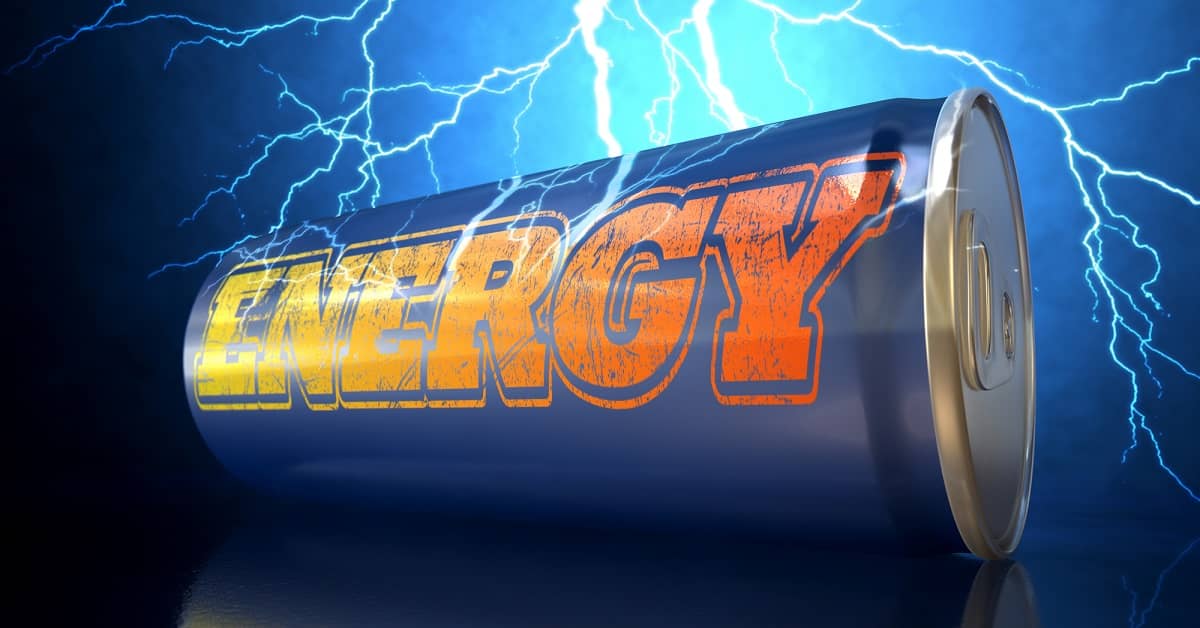
Energy drinks often make headlines for their bold marketing claims and potential health risks. But amidst the debate over their effects lies a surprising truth: these beverages contain an overlooked nutrient that could hold promise in the fight against Alzheimer’s. Let’s take a closer look at a nutrient that could be a game-changer for boosting your memory while you age...
Key Takeaways
- The amino acid taurine stimulates neurogenesis, supporting the formation of new neurons and protecting them from damage.
- It helps reduce inflammation in the brain, potentially benefiting individuals with neurodegenerative conditions like Parkinson’s.
- Taurine supports mitochondrial function, which is crucial for maintaining brain energy and overall cognitive health.
Energy Drink's Brain Boosting Secret
The market for energy drinks has exploded in the last decade. Promoted by sports stars, these drinks are said to not merely boost energy, but improve physical function and supply mental focus, too. The leading brand may even "give you wings," their marketing tells us. Whether these caffeinated beverages do any of these things is debatable. In fact, there are several instances of serious heart health damage from overconsumption of energy drinks. But regardless of your opinion of them, they do contain one nutrient which might actually help stave off Alzheimer's. It’s an odd story…here we go... Energy drinks contain the amino acid taurine. Taurine is unlike other amino acids in the body, because it isn't used to build protein. It’s actually an amino sulfonic (sulfur-containing) acid; a molecular compound with other important roles.
Taurine Energizes Muscle Tissues and Brain Cells
The body makes taurine, and sizable amounts are found in the brain and muscles, including the heart muscle. Doctors use taurine clinically – and with great success – in the treatment of congestive heart failure and liver disease. Taurine is essential to the central nervous system. It's found in high amounts in breast milk because it's vital to brain development. These facts explain why taurine is added to energy drinks -- some studies suggest it can enhance mental capabilities, improve exercise capacity, and raise athletic performance. But there are also scientists who dispute this. As the debate continues, new research suggests that taurine’s benefits to the brain could do more than impart energy. They might also help treat Alzheimer’s disease.
Taurine Supports Healthy Brain Cell Communication
One of taurine’s jobs in the brain is to help transmit nerve impulses. Taurine is a potent regulator of intracellular calcium, which is key to regulating various neurological processes. What’s more, taurine has antioxidant and anti-inflammatory properties. In rodent studies, supplementing with taurine led to the alleviation of anxiety and depression, controlled epileptic seizures, and reduced ADHD-type behavior. Taurine also protected mice from memory disruption induced by alcohol and other toxic chemicals. Another study found that supplementing older mice with taurine improved learning and memory retention, suggesting a neuroprotective role in aging. It’s a dazzling list of benefits, assuming it does the same in humans.
Taurine Deficiency in Alzheimer's Patients
Like many of our body’s vital nutrients and compounds, taurine production slows with age. So, it’s no surprise that taurine is deficient in the brains of people with Alzheimer's. Now, multiple lab studies suggest that taurine could be therapeutic for the disease as well as for other forms of dementia.
For example, the neurotransmitter glutamate is essential to normal brain functioning, and glutamate levels must be tightly regulated. At high concentrations, glutamate is toxic and leads to the injury and death of neurons. This is precisely what occurs in Alzheimer's. Taurine dampens glutamate signaling by stimulating another neurotransmitter, GABA, which has a calming effect. For this reason, some researchers speculate that taurine could have therapeutic potential in Alzheimer's.
Other evidence makes their case even stronger.
Taurine Helps Mice Regain Cognitive Function
In 2014, researchers from Korea took mice afflicted with the human equivalent of Alzheimer's and fed them taurine every day for six weeks. Then, they looked for changes in cognition over the following three months. Remarkably, the mice regained their cognitive functions. CT scans showed that beta-amyloid plaques were blocked from forming.
Neuroscientist Young Soo Kim, who led the research, said that "drug development based on taurine would lead to safe and effective medicine."
Another Korean research group published a similar study in the journal Scientific Reports1. They, too, fed taurine to mice with Alzheimer's. They started the taurine diet at two months of age when amyloid plaque formation begins. These mice were compared to those in another group not given taurine, as well as a third group of healthy, control mice.
The researchers were interested in a receptor called mGluR5, part of the glutamate system. It's found in high levels in parts of the brain involved with learning and memory, such as the hippocampus. The receptor enhances GABA, blocks the action of amyloid beta, and has recently been considered an important therapeutic target in Alzheimer’s disease.
In a recent study in people with mild cognitive impairment and early Alzheimer's, researchers found a significant 43 percent reduction of mGluR5 availability in the hippocampus compared to healthy controls. The greater the reduction, the worse the cognitive performance.
The Korean research, using brain scans, showed the taurine-treated mice had a significant increase in uptake of mGluR5. The compound was between 31 percent to 40 percent higher in four areas of the brain— including 36 percent higher in the hippocampus— compared to the Alzheimer's mice who didn’t receive taurine. In fact, mGluR5 was only three percent to 14 percent lower in the treated group than in the healthy control group.
The scientists in the mouse study concluded that "taurine has therapeutic potential against Alzheimer's disease."
Getting More Taurine
Taurine is considered an extremely safe nutrient. I should point out that when it comes to energy drinks, it’s the excessive caffeine, not the taurine, that’s believed to cause health problems. In the opinion of the European Food Safety Authority, taurine has no adverse effects at 1000 mg per kilogram of body weight per day, which would be a really excessive amount to take. Another risk assessment designated the upper level of taurine supplementation at 3000 mg daily.
Taurine is not only manufactured in the body but it’s also found naturally at high levels in shellfish and the dark meat of chicken and turkey. For instance, a typical seven-ounce slice of roast dark turkey meat would provide 600 mg of taurine.
Our Takeaway
Although there hasn’t been much research in humans, considering its safety profile and well-known deficiency in the brains of people with Alzheimer’s disease, it's worth considering taurine as a supplement. The usual recommended dose is between 500 mg and 2000 mg per day.
Summary
Taurine, a vital nutrient similar to amino acids, plays an essential role in brain health by promoting the growth of new neurons, protecting against inflammation, and supporting mitochondrial function. This nutrient, found in meat, fish, and dairy, as well as seaweed, enhances cognitive resilience and could be beneficial in managing conditions like Parkinson’s disease and psychosis. Though taurine supplements can provide targeted benefits, most people can obtain sufficient amounts through a balanced diet.
Frequently Asked Questions
What is taurine, and why is it important for the brain?
Taurine is a nutrient similar to amino acids that supports neuron growth, reduces brain inflammation, and helps maintain mitochondrial health, which is crucial for cognitive function.
Which foods are rich in taurine?
Taurine is found in meat, fish, dairy, and seaweed. It’s also present in energy drinks, which are not the healthiest source due to added sugar and caffeine.
Can vegetarians get enough taurine?
Vegetarians might have lower taurine levels since it’s primarily found in animal products. Supplementation or seaweed consumption may help.
How does taurine help with neurodegenerative diseases?
Taurine reduces inflammation and protects neurons from damage, which can be beneficial in conditions like Parkinson’s disease and psychosis.
Is taurine safe to take as a supplement?
Taurine is generally safe for most people when taken in moderate amounts. However, it's always best to consult a healthcare provider before starting supplements.
- https://webmd.com/vitamins/ai/ingredientmono-1024/taurine
- https://pubmed.ncbi.nlm.nih.gov/18375059/ Taurine improves learning and retention in aged mice
- https://www.ncbi.nlm.nih.gov/pmc/articles/PMC4264000/ Taurine in drinking water recovers learning and memory in the adult APP/PS1 mouse model of Alzheimer's disease
- https://pubmed.ncbi.nlm.nih.gov/15003996/ Taurine prevents the neurotoxicity of beta-amyloid and glutamate receptor agonists: activation of GABA receptors and possible implications for Alzheimer's disease and other neurological disorders
- https://www.ncbi.nlm.nih.gov/pmc/articles/PMC6536745/ Taurine and its analogs in neurological disorders: Focus on therapeutic potential and molecular mechanisms
- https://alzres.biomedcentral.com/articles/10.1186/s13195-020-0582-0 PET imaging of mGluR5 in Alzheimer’s disease
- https://www.ncbi.nlm.nih.gov/pmc/articles/PMC7511343/ Evaluation of the neuroprotective effect of taurine in Alzheimer’s disease using functional molecular imaging
